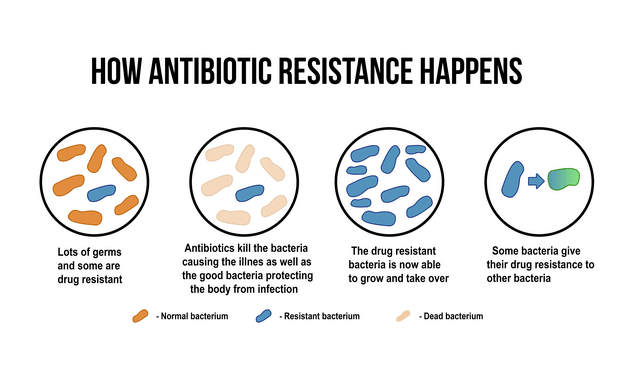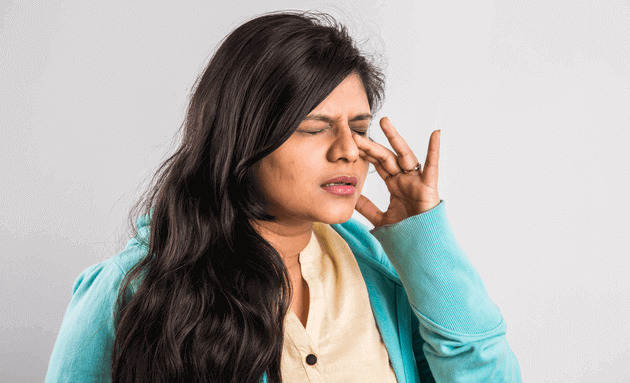Are Antibiotics Necessary for the Common Cold?
The common cold, simply known as a cold, is ubiquitous in Indian households. As much as we trust home remedies to treat our common cold, some of us rush to antibiotics, hoping it would cure us sooner.
What Causes The Common Cold?

Experiencing cold symptoms like a runny nose, sore throat, sinus infections and headaches, congestion, or a general feeling of being unwell is not new to any of us.
The common cold is a viral infection that affects the upper respiratory tract. According to the CDC (Centre for Disease Control and Prevention), every adult has been affected by the common cold, also known as acute viral rhinopharyngitis or acute coryza, at least 2-3 times in a year, while children can get upto 12 per year.
The major cause for a common cold is exposure to coronaviruses or rhinoviruses.
Since there are more than 200 types of viruses that can cause a common cold, your body can never build resistance to all of them. This makes it one of the most common conditions in the world.
How Long Does A Common Cold Last?

The common cold generally lasts around 7-10 days and may last upto 2 weeks in some people. It will depend on your immune system and other lifestyle factors like smoking and drinking that can inhibit the healing process.
More often than not, your body will fight the infection by itself. But if symptoms persist, medical intervention may be necessary.
Do You Have The Common Cold Or Flu?
Common cold and flu share symptoms, and are often confused. However, the first signs of a cold is a sore throat and runny nose.
The flu will show symptoms of cold along with fever, body aches, chills, and sweats.
Do Antibiotics Help Cure The Common Cold?

Researchers from Cochrane Collaboration - an international research network - found that antibiotics have no role to play in treating the common cold.
What Are Antibiotics?

Antibiotics are medicines developed to fight bacterial and fungal infections. They do not work on viral infections, therefore failing to be of any relief for symptoms of the common cold.
More often than not, a common cold may lead to a bacterial infection. In that case, antibiotics would help relieve symptoms. But antibiotics often cause side effects and the pros and cons of using them should be monitored.
What Are The Side Effects Of Antibiotics?

Antibiotics may cause an imbalance in your body’s natural good and bad bacteria composition. The most common side effects of antibiotics are:
- Nausea, vomiting, and severe diarrhoea
- Vaginal infections
- Nerve damage
- Torn tendons
- Life-threatening allergic reactions
Overuse of antibiotics for quick recovery and relief has led to “superbugs” - bacteria that have become antibiotic-resistant. They can cause drug-resistant infections and other serious medical complications.
When Do You Need Antibiotics?

Antibiotics work well to relieve symptoms and cure bacterial infections like:
- Bacterial pneumonia
- Strep throat
- Whooping cough (Pertussis)
- A sinus infection that persists longer than 7 days
Consume antibiotics only if prescribed by a certified medical practitioner.
Antibiotics Is Not The Answer To All Infections

India is one of the leading users of antibiotics, and its overuse is rampant. Although the problem of misuse of antibiotics is global, it is nowhere as grave as in India. Poor public health infrastructure, unregulated sales of antibiotics, rampant OTC prescriptions, and a high burden of disease has created ideal conditions for antibiotic-resistant superbugs.
The United Nations has classified AMR - Antimicrobial Resistance - as serious as Ebola and HIV. There is now growing demand for tight regulations on the prescription and sale of antibiotics.
Treating The Common Cold

Trust home remedies to relieve symptoms of the common cold. However, if discomfort persists for more than a week, you should consult your general physician and get yourself diagnosed correctly. Here are 5 simple ways to treat the common cold:
- Ginger Tea: Ginger and tea together are known to do wonders for a sore throat and runny nose. It helps dry running and dripping nose, expelling phlegm from the respiratory tract and clearing your nasal passage.
- Lukewarm Water: Warm water reduces inflammation in the throat and helps flush out infections from your body, while replenishing lost fluids.
- Vaccines: Get yourself vaccinated for Diphtheria, Tetanus or Whooping Cough at least once to stay safe from these common infections.
- Oral Decongestants and Nasal Sprays: For nasal discomfort, ask your doctor to prescribe a nasal spray to relieve symptoms.
- Maintain personal hygiene: Wash your hands often, especially after commuting and specifically before eating. Avoid sharing medicines or coming in physical contact with someone who is already affected. Common Cold is contagious.
To prevent common cold and other infections, ensure you maintain a healthy diet rich in Vitamin C, whole foods, and fresh vegetables.






